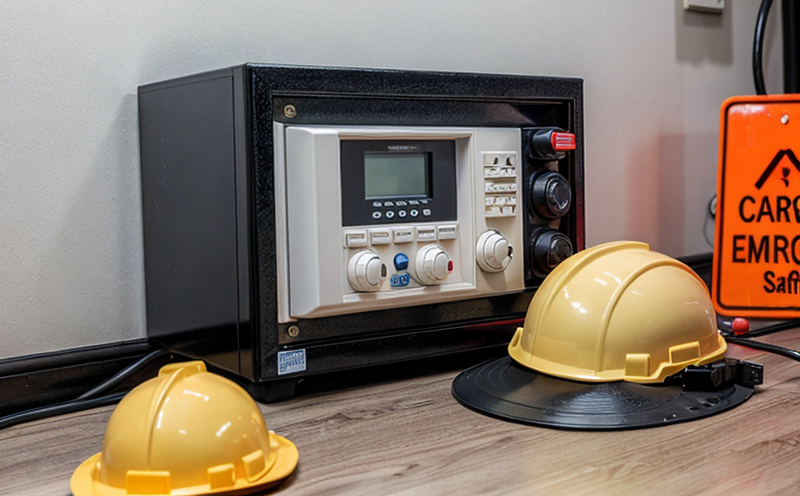ISO 11896 Survival Suit Thermal Protection Testing
The International Organization for Standardization (ISO) provides a robust framework to ensure safety and reliability in various sectors, including aerospace & aviation. The ISO 11896 standard specifically addresses the thermal protection requirements of survival suits used in maritime environments where rapid immersion in cold water is a risk.
This service at Eurolab focuses on ensuring that survival suits meet stringent safety criteria outlined by ISO 11896-2, which requires testing to ensure thermal performance. These tests are critical for the integrity of personal protective equipment used in emergency scenarios where time and temperature can be life-threatening factors.
The primary goal is to verify that survival suits provide adequate insulation against cold water immersion. This involves simulating real-world conditions through controlled laboratory environments, using standardized procedures and calibrated equipment. The testing process includes several key steps: specimen preparation, initial conditioning, exposure to cold water, and subsequent measurement of thermal resistance.
The ISO 11896 standard emphasizes the importance of not only meeting minimum insulation requirements but also ensuring that survival suits can maintain their performance over extended periods. This is particularly crucial in maritime environments where the risk of hypothermia remains a significant concern. The tests are designed to replicate the conditions survivors might encounter, such as sudden immersion in cold water and prolonged exposure.
At Eurolab, we use state-of-the-art facilities that comply with ISO 11896 standards, ensuring precise and reliable testing results. Our team of experts utilizes advanced instrumentation, including calorimeters and thermal manikins, to conduct these tests accurately and efficiently. The entire process is meticulously controlled to ensure consistent and repeatable results.
Specimen preparation is a critical first step in the testing process. This involves selecting representative samples from each batch of survival suits that undergo rigorous conditioning to simulate real-world conditions before testing begins. The specimens are then placed into cold water tanks, where they remain for specified durations as per ISO 11896 requirements.
The exposure time and temperature are carefully controlled to replicate the conditions a survivor might encounter in an emergency situation. After the exposure period, detailed measurements of thermal resistance are taken using specialized equipment designed to meet ISO standards. These measurements provide critical data on the suit's ability to insulate against cold water.
Once testing is complete, comprehensive reports are generated detailing all aspects of the test process and results. The report includes a detailed analysis of the suit's thermal performance, highlighting any areas where improvements might be necessary. This information is invaluable for manufacturers and regulatory bodies ensuring compliance with ISO 11896 standards.
Understanding the full scope of these tests requires an appreciation of the critical role that survival suits play in maritime safety. The primary focus remains on ensuring that these suits provide reliable thermal protection, which can mean the difference between life and death in challenging environments. By adhering strictly to ISO 11896 standards, we ensure that our clients receive accurate, consistent results they can trust.
- Replicating real-world conditions through controlled laboratory setups
- Using state-of-the-art calorimeters and thermal manikins for precise measurements
- Meticulous specimen preparation to ensure representative samples
- Detailed reporting that includes both test results and recommendations for improvement
Scope and Methodology
The ISO 11896 standard defines the requirements for personal protective equipment used in maritime environments where rapid immersion into cold water is a risk. The standard covers various aspects of survival suit design, construction, and performance, including thermal protection.
For thermal protection testing specifically, ISO 11896-2 outlines detailed procedures to ensure that the suits meet minimum insulation requirements. This includes specifying conditions for specimen preparation, exposure time in cold water, and measurement techniques for determining thermal resistance.
The methodology involves several critical steps:
- Specimen selection: Representative samples are chosen from each batch of survival suits to ensure a wide range of test data is collected.
- Conditioning: The specimens undergo initial conditioning to simulate real-world conditions, ensuring consistency in testing results.
- Exposure: Specimens are placed into cold water tanks for the specified duration as per ISO 11896 requirements.
- Measurement: Detailed measurements of thermal resistance are taken using calibrated equipment designed to meet ISO standards.
The results from these tests provide critical data on the suit's ability to insulate against cold water, ensuring that they meet the stringent requirements outlined by ISO 11896. This methodology ensures consistent and reliable testing, which is essential for maintaining high safety standards in maritime environments.
Eurolab Advantages
At Eurolab, our commitment to excellence in aerospace & aviation testing sets us apart. With ISO 11896 compliance and state-of-the-art facilities, we provide unparalleled expertise in survival suit thermal protection testing.
Our team of highly skilled engineers and technicians ensures that every test is conducted with precision and accuracy, delivering reliable results that you can trust. Our advanced instrumentation, including calorimeters and thermal manikins, allows for detailed measurement and analysis, ensuring that even the most complex scenarios are accurately replicated in our laboratory.
Our extensive experience in aerospace & aviation testing means we understand the unique challenges faced by manufacturers and regulatory bodies. We offer comprehensive support throughout the entire process, from initial consultation to final report generation. Our clients benefit from a seamless service delivery that ensures compliance with ISO 11896 standards.
We also pride ourselves on our commitment to innovation, continuously updating our facilities and methodologies to meet the evolving needs of the industry. This ensures that we remain at the forefront of aerospace & aviation testing, providing services that are not only compliant but also cutting-edge.





